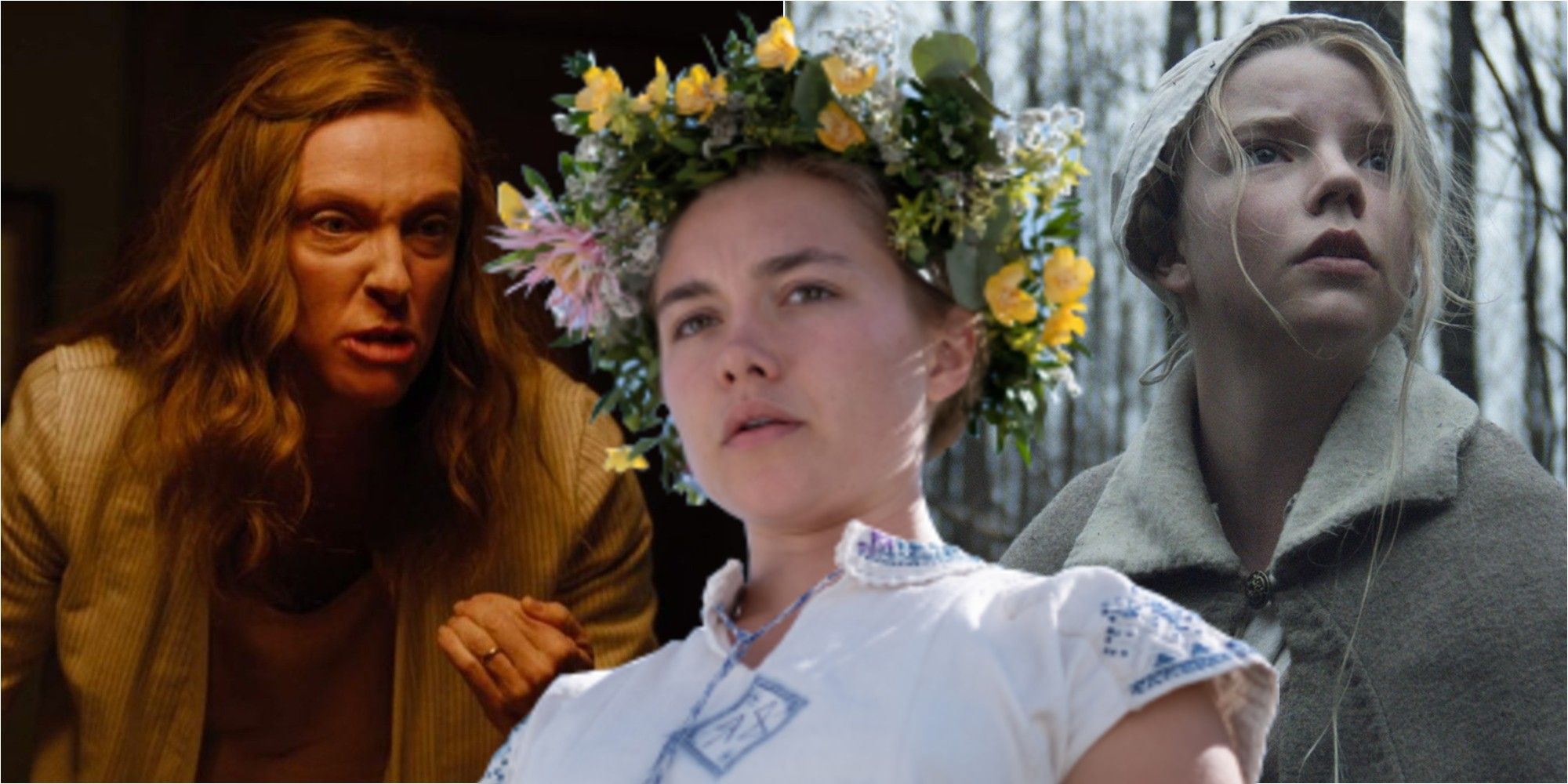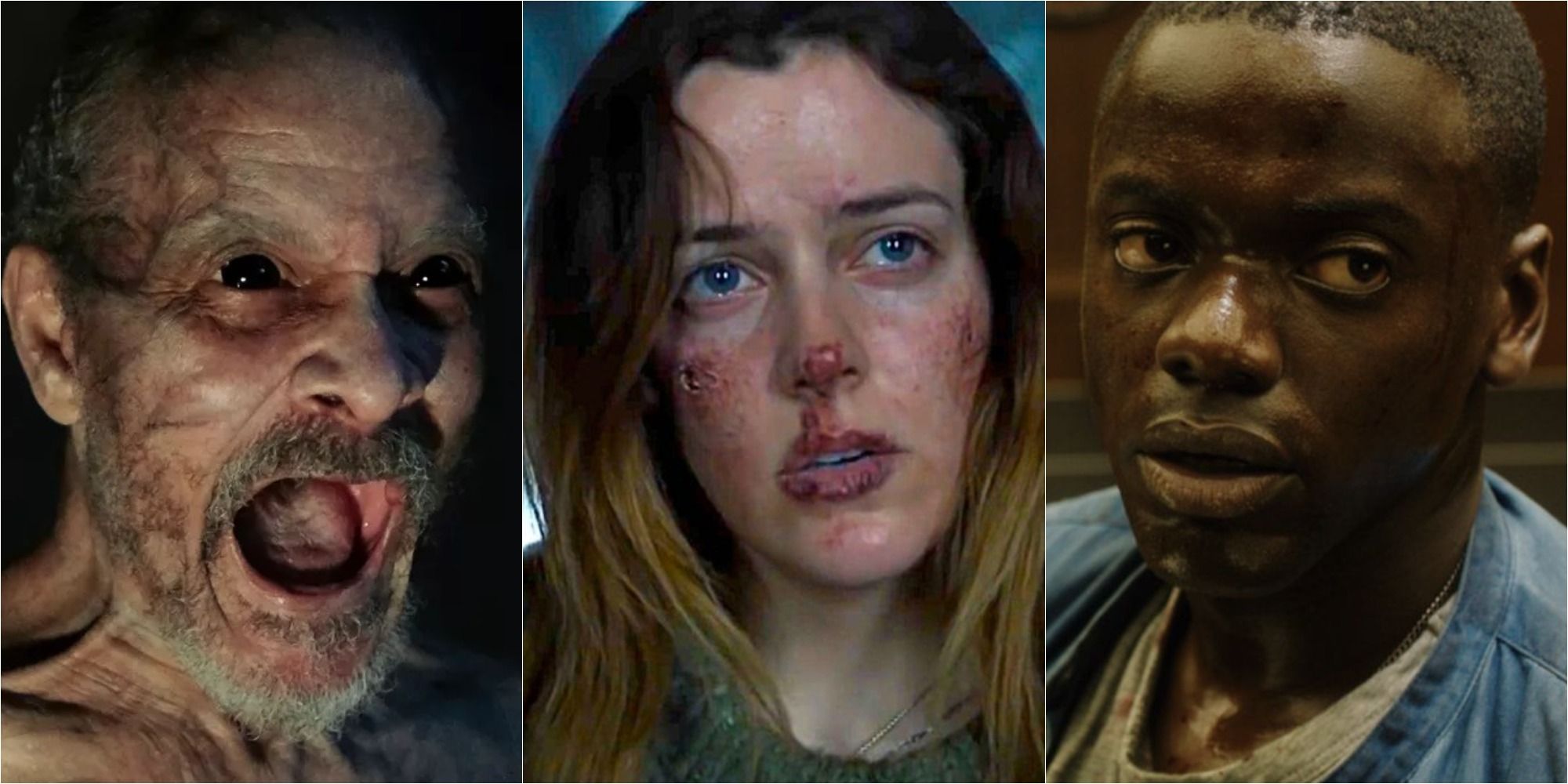
The horror movie genre has always existed on the fringe of cinema; historically, studios have been at least a little wary of marketing them, but A24 and the rise of arthouse horror changed that in the 2010s. Alongside critical scrutiny, the Academy has notably been uneasy about recognizing horror movies as well, but the last decade saw a loophole around the existing taboo of horror movies. A new sub-genre emerged, giving movie fans a term some are more comfortable with — elevated horror.
While the genre is built on gimmicks, tropes, and jump scares, elevated horror traditionally refers to arthouse psychological horror movies. These films find a different way to get under the audience's skin, namely through emotions and anxieties. This particular crop of movies is more unsettling and disturbing than what is considered more traditionally scary. These films started as the jumping-off points for up-and-coming stars, but have increasingly attracted major actors as the style has become more popular and critically acclaimed.
This term began to see traction thanks to arthouse production company A24, which has become synonymous with bold and out-of-the-box movies in the past decade. A24 churned out hit after hit, making it one of the most popular brands in Hollywood. So, with A24 making horror movies, fans needed a term they'd be comfortable with — enter the concept of "elevated horror".

An early example of elevated horror is 2016's The Witch. The Robert Eggers directed A24 movie had all the beats of a successful arthouse film — small budget, beautiful aesthetics, and a simple story that holds a much deeper, often allegorical, meaning. But the thing that set The Witch apart was the way it went about infusing supernatural horror and unsettling religious elements into its story. It silently crept up on the audience until it completely enveloped them by the horror movie's end. However, this style of film isn't just unique to A24.
Comedian Jordan Peele took this concept and ran with it for his breakthrough film Get Out, which turned him into a household name as one of the genre's most promising directors and writers. With the movie's multiple Oscar nominations, Peele shattered the wall that so many horror movies that were snubbed couldn't — he finally got the Academy to legitimize the genre. While this is still something of a work in progress in terms of broader recognition, it's certainly a step in the right direction.
That said, elevated horror and traditional horror are just two sides of the same coin. At the end of the day, elevated horror movies still belong to the horror genre. Tacking on the new term doesn't change that. Instead, it introduces a complicated dichotomy. For one, it has allowed horror movies to enter the conversation. At the same time, it further puts down horror movies that are not considered to hold this distinction, relegating them to be seen as "lesser" by some as a result. Horror is horror and - just like any genre - it encompasses a vast array of stories and styles. While the idea of elevated horror movies may continue to isolate horror fans in a sense, at least it's a gateway to introduce more fans to the genre as a whole and perhaps even opens a door to earn greater recognition during the next decade.
https://ift.tt/3oMz6vR
January 15, 2021 at 06:00AM




